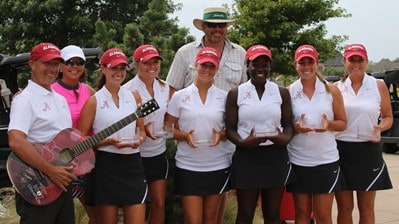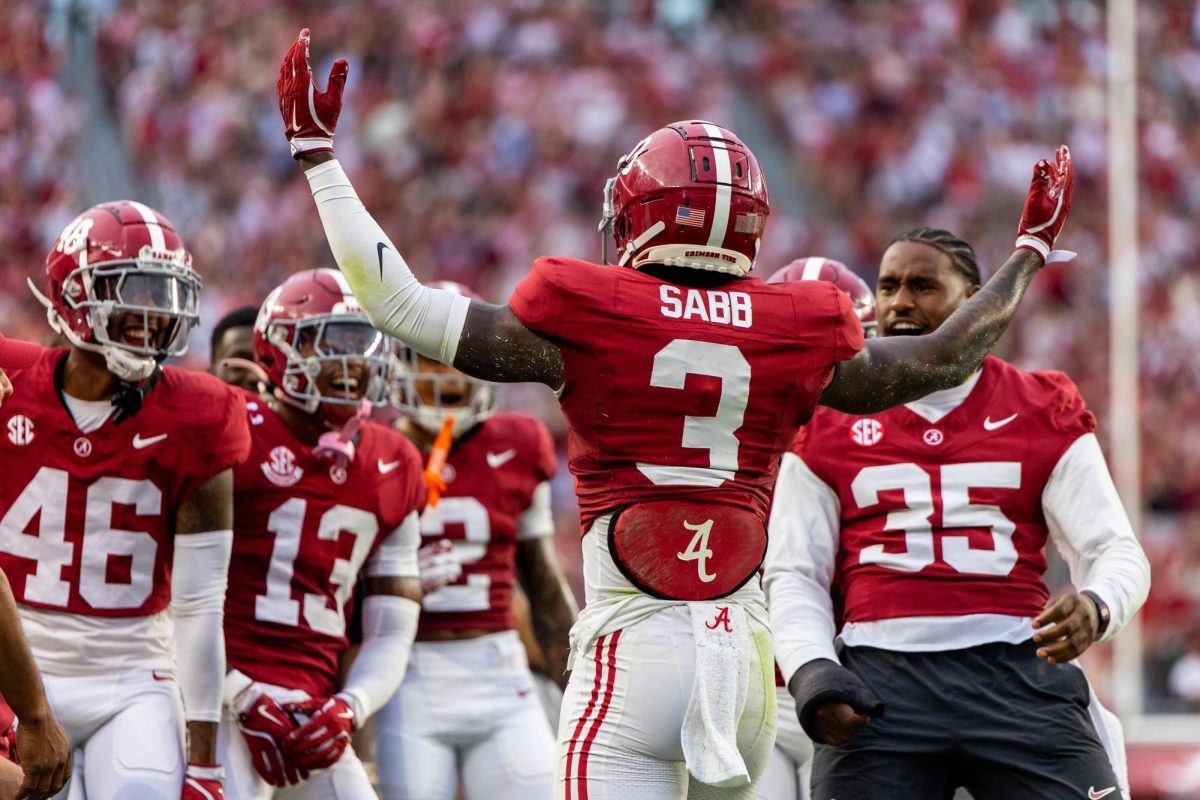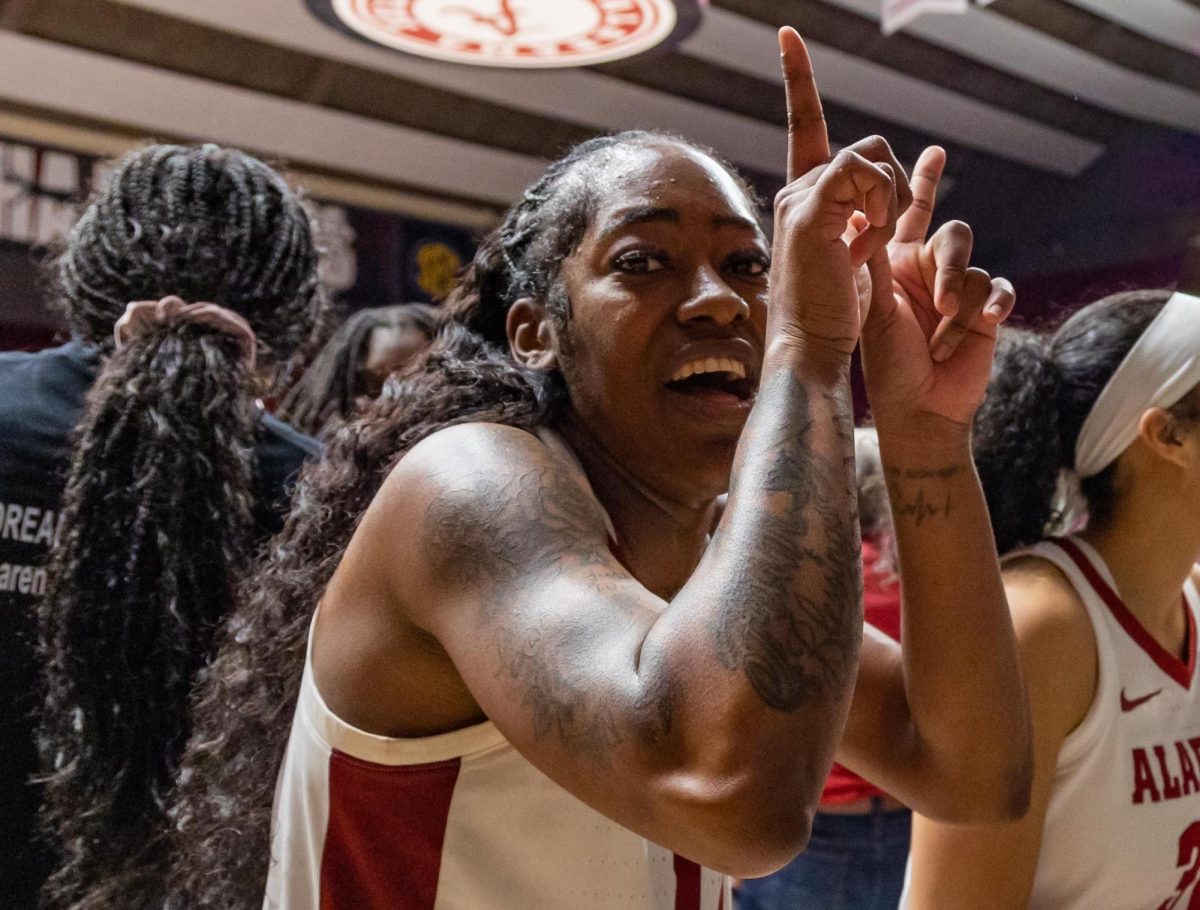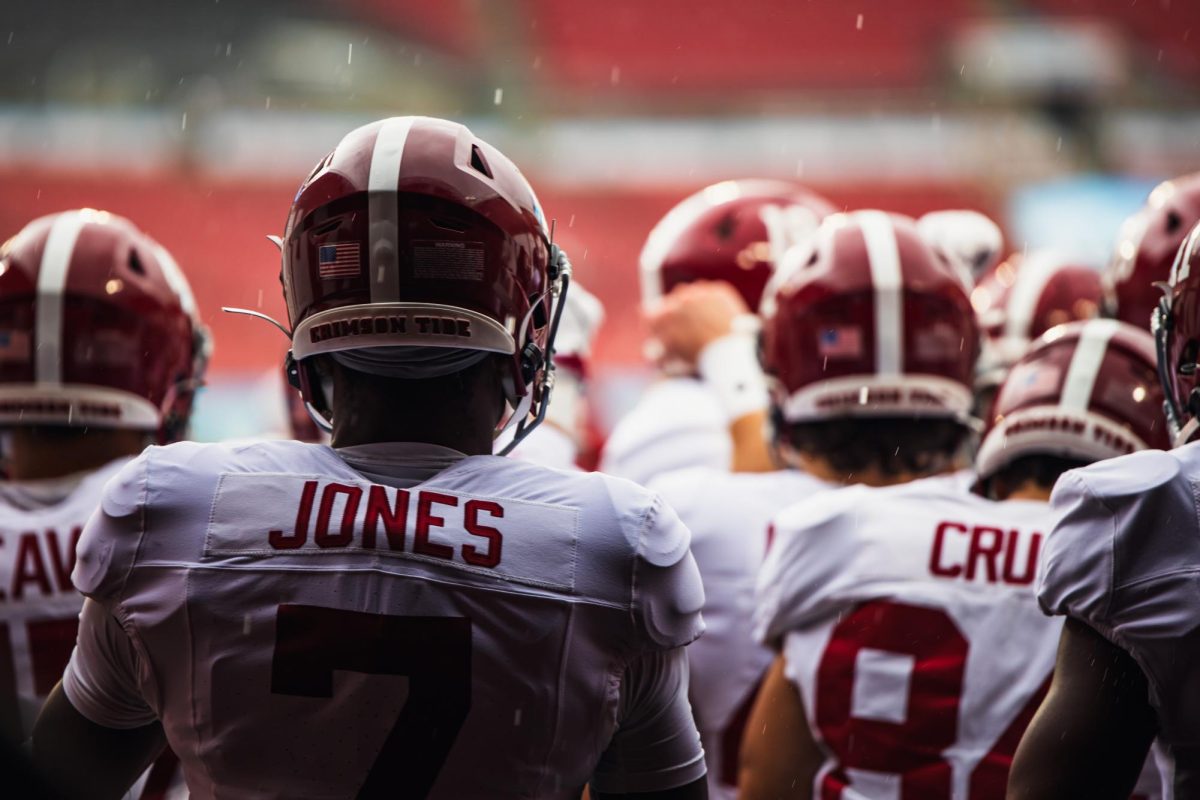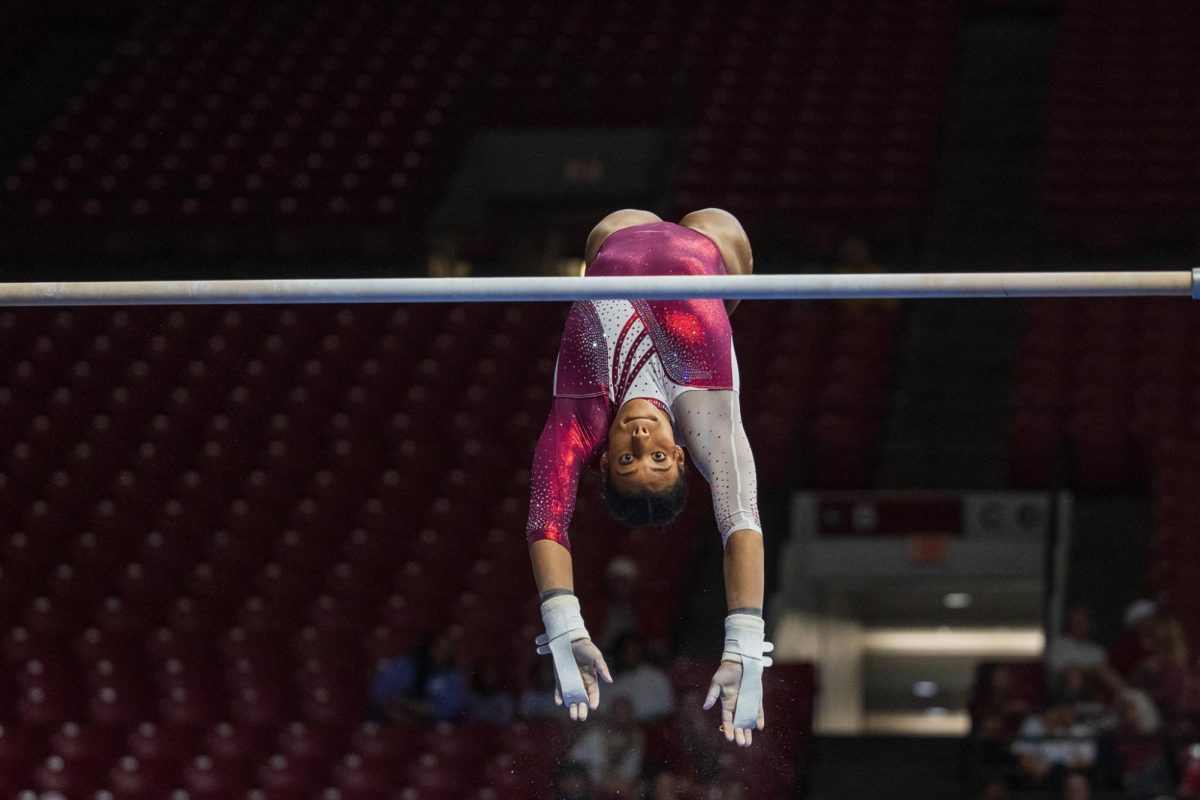Since being hired as the Alabama women’s golf coach in 2005, Mic Potter, along with his assistant Susan Rosenstiel, has crafted a program that is built to last. Currently riding a streak of 12 consecutive years qualifying for the national championship, which includes a win in 2012, the team appears well on its way to a 13th.
Even during the season, Potter and Rosenstiel work tirelessly on recruiting, spending two to three hours per day combing junior golf results from around the world in hopes of finding the next great Alabama golfer.
Potter said they are currently scouting prospects who haven’t yet begun high school, examining their tournament results, golf swings, interactions with peers and parents, and academic goals. Over time, this philosophy has created teams of quality players who are accustomed to handling pressure and driven by both individual and team success.
This year’s team, ranked No. 1 by Golfstat last week, is perhaps the most talented of Potter’s tenure at Alabama. Four of the five starters have won a college tournament, and the fifth is a freshman who has played only three tournaments.
“They all know how to win, they all have tremendous resumes,” Potter said. “Even Angelica [Moresco], who’s our No. 5 player right now, has been in big tournaments pretty often for Team Italy, and that experience pays off also. I don’t think we’ve been at a point where we’ve had this many high-level players on the team at the same time.”
Junior Lauren Stephenson, who has finished in the top three of all three tournaments this year, said Alabama’s combination of prodigious talent and endless work ethic sets it apart from other teams.
“A lot of people are just talented and they don’t really have to work as hard, or they do work really hard but maybe aren’t as talented,” Stephenson said. “But we have people who do both, so it makes us even better.”
Stephenson and sophomore Kristen Gillman said all five starters hope to play professionally after college, which fuels their drive to improve every day.
So far this fall, the team has seen both individual and team records fall as it ascended to the No. 1 ranking. Stephenson’s 16-under-par 200 to win the season-opening Mason Rudolph Championship was a school record. She shot 64, the second lowest round in school history, in the final round to win. Gillman matched both scores the following week.
Four of the five lowest team scores in school history have come in the last 37 days. There’s a lot to be excited about, said Stephenson, who is ranked No. 1 nationally, but the team is not even close to finished.
“[Being ranked No. 1] was pretty exciting,” Stephenson said. “It doesn’t really mean anything for the rest of the year, but it does make me feel good that my hard work is paying off. It’s very rewarding.”
Professional golfers who have reached the pinnacle of the world golf ranking have said they struggled to set goals afterward. Stephenson said that won’t be a problem because each player must keep her own game sharp in order to continue the team’s torrid pace.
“This is the middle of the season, so we’ve got a long way to go,” Stephenson said. “I’ve got to keep getting better not only for my own game, but also so we can be that much stronger for when we go to nationals.”
The team learned last year that midseason rankings mean little when the postseason arrives. Ranked second entering the national championship in May, the Crimson Tide struggled to a 14th-place finish out of 24 teams.
Just a few hours after the final putt dropped, Potter was already looking forward to this season. On the team’s flight back to Tuscaloosa, he and his players were searching for answers. What could they do better?
Gillman said the players have been practicing more individually this year, rather than everyone practicing the same skills at the same time. Taking ownership of their practice time allows them to pinpoint and address aspects of their game they believe need the most attention.
She said Potter and Rosenstiel have helped design drills to aid her putting, while Stephenson said her short game is much improved, a key reason her ranking jumped from 20th last year to first this year. With such great play, though, Potter said Stephenson must keep her expectations realistic.
After she won the Mason Rudolph, a traditionally low-scoring tournament, she expected too much of herself at the following week’s Schooner Golf Classic, held at a windier golf course with trickier greens. Potter said it’s human nature to believe that great success can easily be replicated, but in golf, that’s not always the reality.
“All you can do in golf is just put yourself in position,” Potter said. “When Tiger Woods was in his prime, he won less than 25% of the time. I’d like them to try and expect to win every week, but unfortunately it’s not going to happen.”
That’s partly why Potter said he hates rankings: they place unnecessary pressure on the player to justify her ranking.
He didn’t tell the team or Stephenson about being ranked No. 1 because he knew they would find out via social media. If he had told them, though, he would have added a caveat:
“This is no big deal. We might be ranked No. 1 right now, but it could change after next week if we don’t do our job. Doing our job to the best of our ability is all I care about. I don’t care who’s in the field, what the conditions are – we’ve got to handle it.”



